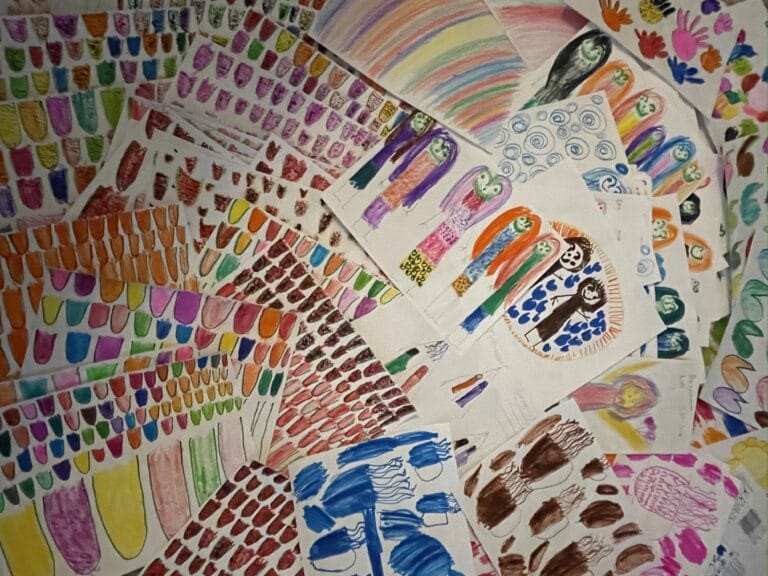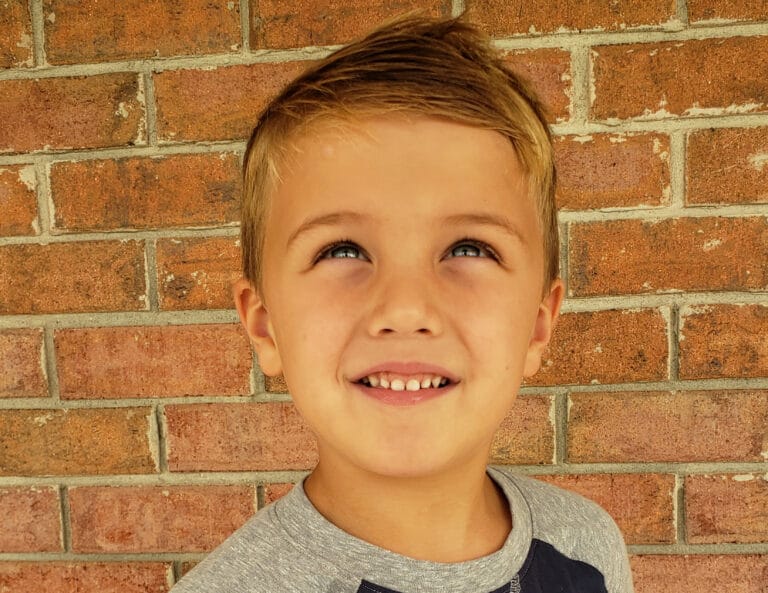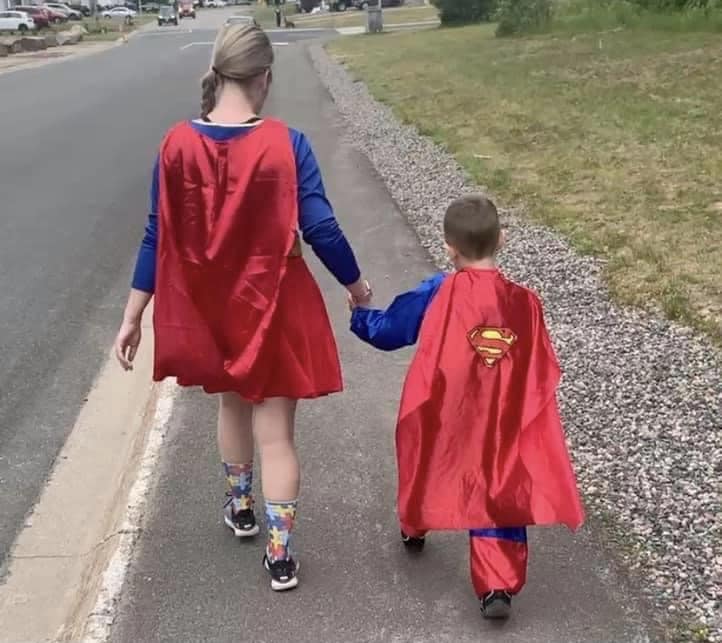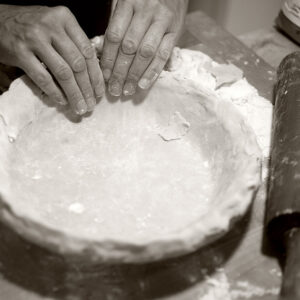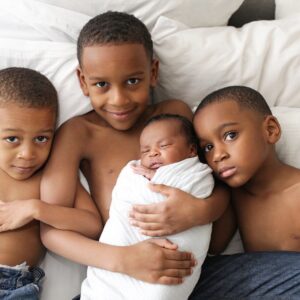“Are you sure about that diagnosis?” I blinked at her in surprise. My son was recently diagnosed with autism, and I had just told one of his teachers.
Before you ask, no, this teacher did not have a Ph.D. in pediatric neuropsychiatry. She was a karate instructor who had seen my child one hour a week for a year.
I wanted to tell her about our multi-year struggle to get this diagnosis. The arguments with the pediatrician as she brushed aside my concerns. The hours of phone calls with providers and the hundreds of pages of paperwork. The thousands of dollars for care not covered by insurance.
And now, after he has been diagnosed, I live with the regret that I didn’t push harder, that I didn’t insist they test him earlier. I knew my son needed help, but for years I couldn’t find anyone who would listen.
RELATED: Before I Knew Autism
S is now nine, and when I tell people about him, many don’t know what to say. I know most of these people are kind and just choose to say the wrong thing.
So, let me tell you what not to say when you learn a child has autism.
Don’t tell me you’re sorry.
Saying you’re sorry sounds like if I had the choice, I would change my son or fix him. If God called me up and gave me the opportunity to take back my son’s diagnosis, to make him normal, I am not sure I would take the Almighty up on that.
Would I like to change some of his behaviors? Yes. When he was seven, S started threatening to kill himself. He tried to strangle himself with a lanyard and tried to strangle his sister. He has destroyed classrooms at school, including throwing tables and chairs around the room.
This behavior is devastating.
But he is also extremely bright, and his intelligence, wit, and humor inspire me every day. Autism is inextricably linked with S, and I see his autism in so many things I love about him. At the age of six, while visiting the ear, nose, and throat doctor, S listed all the scientific names of the inner ear’s anatomy to her. She turned and stared at me, telling me he had listed everything correctly. I have no idea how he learned this. He just knows things.
Sometimes he’ll say something, and my stomach does a flip because I love him so much. Once, when I was dressing him, he took my face in his hands and said, “Mommy, you have really nice chromosomes.”
If I took away autism, I would take away so much of what makes S himself.
So don’t say you’re sorry.
Also, don’t be like the karate teacher.
Since that first time, it is surprising to me how many times I have heard, “Oh, wow, I’m surprised, I would never have thought he is autistic. Are you sure that diagnosis is correct?”
Yes, S has good eye contact and his vocabulary and grammar are superb. But, he also thrives in an environment that is predictable and does not do well with unexpected changes. When he gets over-stimulated, he stims with his hands (stimming, or self-stimulatory behavior, is repetitive action or movement of the body). He can’t control the volume of his voice, so he’s almost always shouting. He gets extremely stressed and frequently worries and has lengthy and severe meltdowns.
Does this sound like the kid down the street who is autistic? Or your brother’s cousin’s friend’s kid?
Probably not.
That’s because autism is a spectrum, and it presents differently in each person.
Autism is not something you can diagnose with a list of symptoms found on WebMD. Symptoms and behaviors vary widely from person to person.
Additionally, once you know a child has autism, don’t assume that all his or her behaviors are caused by ASD. Although S is autistic, he also does normal kid things, like screaming outside while he plays. He doesn’t scream outside because he’s autistic, he screams because he’s an elementary school-aged child.
RELATED: Sometimes Autism Spectrum Disorder Hides in Plain Sight
During lockdown in the summer of 2020, my kids and their neighborhood friend (who is the same age as S and is also on the spectrum) spent a great deal of time playing outside. I got three separate complaints from our neighbors, and they all referred to autism as a part of the problem. One said, “I know the boys are autistic, but the noise is becoming a problem.” Another stated, “It’s been a difficult summer living on a street with two autistic boys.”
There were several other children there, who were also screaming. But for some reason, no one complained about them. They complained about “the autistic boys.” I’m not saying that my neighbors had no reason to complain. I’m sure they were stressed, at their wit’s end, and worried they were going to die of a strange virus. And on top of everything, the neighborhood kids wouldn’t stop screaming. But if you want to complain about children’s behaviors, complain that they’re acting like badly behaved kids, not autistic kids.
Don’t ask me if I had a traumatic event or if something went wrong during my pregnancy.
Don’t ask if I took medication or drank during my pregnancy. This is hurtful because it insinuates my child’s diagnosis is my fault. It astounds me how many people I hardly know ask these types of questions. Do they think I would actually tell them if something traumatic happened when I was pregnant? There’s really no excuse for asking me this. Just don’t.
Lastly, when I tell you S is autistic, I’m not looking for advice. Don’t get me wrong, I know it is well-intentioned, but it doesn’t come across that way. Most of the time, unsolicited advice comes across as judgmental.
Notice a key word there: unsolicited.
Rest assured, if I need help or advice, I will ask for it. When I tell you about our struggles, and you respond not with understanding but advice, it makes me feel like you are saying if you were in my shoes, you would handle things better. It’s like saying that, although you haven’t spent any significant time with my child or anyone with autism, you know what to do.
So how should you respond? Listen.
I know listening without saying anything can be difficult. So if you need to speak, choose comments like, “My grandson is autistic; he’s now in his 20s. I remember when he was your son’s age, it was a really difficult time. But now he’s thriving, working, and happy. You’re doing all the right things. You’re a great mom.”
RELATED: When Autism Came Into Our Lives, I Wish Someone Had Said “It Will Be OK”
Asking questions like, “What was the diagnosis process like for you?” is a great way to learn something and be supportive.
Be empathetic, listen, and ask questions. Try to realize that my family has been on a nine-year journey toward this moment, and you have seen a tiny slice of it. But if you keep an open mind, you may just learn something.

If you liked this, you'll love our book, SO GOD MADE A MOTHER available now!
Order NowCheck out our new Keepsake Companion Journal that pairs with our So God Made a Mother book!
Order Now



